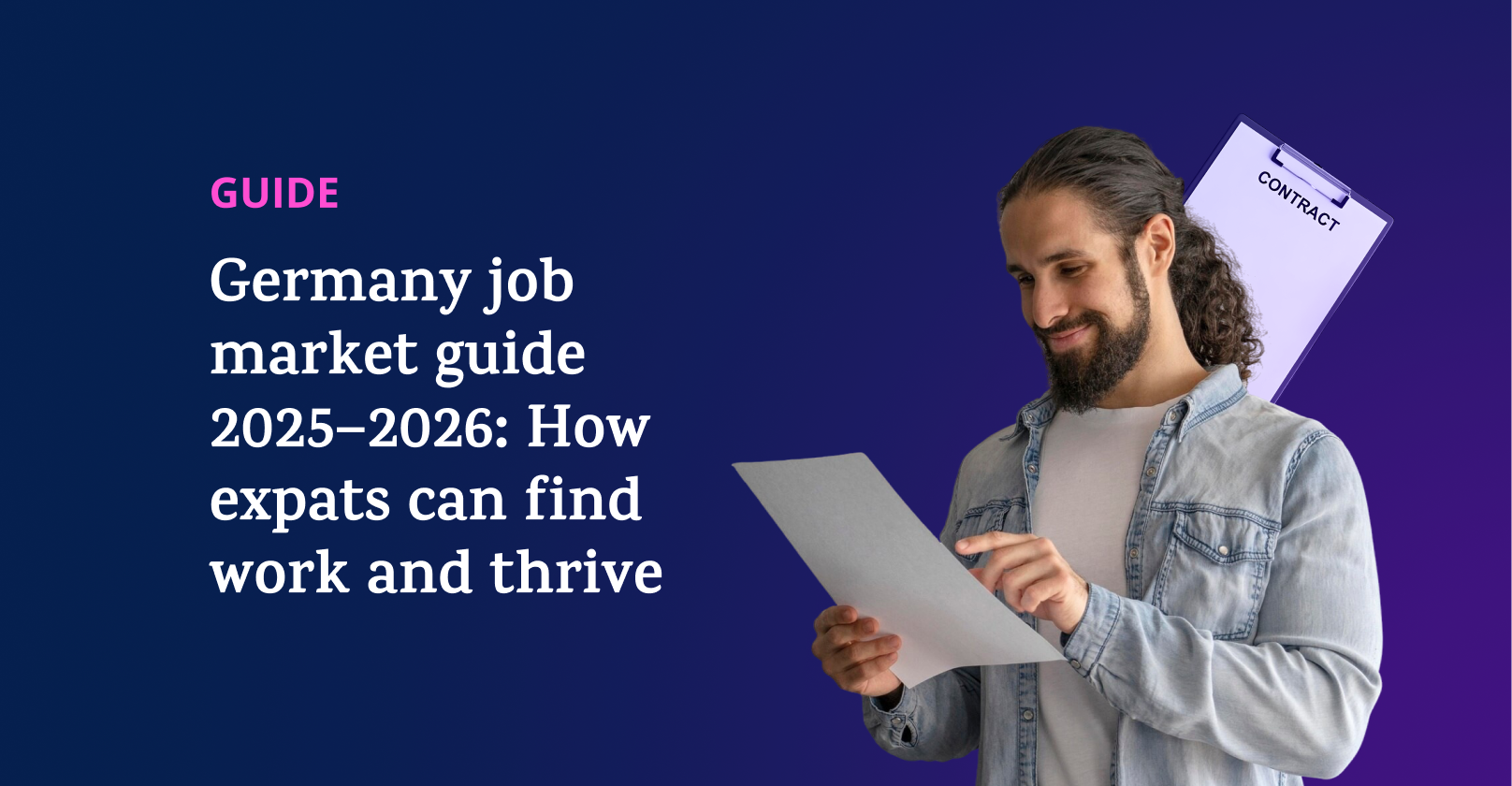Do you really need a master’s degree to work in Germany?

Germany is widely known for attracting many international workers due to the massive demand and growth of highly-specialised industries like telecoms, IT, electronics, engineering, high-tech manufacturing, automotive industries, and the continued growth of German startups. If you’re dreaming of starting a high-paying career in this country, it’s best to analyse the job market to find out the level of education it takes it takes to land your dream job.
How to determine if you need a master’s degree to work in Germany
So...do you really need a master’s degree to work in Germany? It depends - both on the country where you finished your education and the job you are applying for. If you have a master’s degree from a non-EU country, for example, Germany might not automatically recognise this.
You can use recognition finder tools to determine if your academic credentials are enough to qualify for a job in Germany. The Central Office for Foreign Education (Zentralstelle für ausländisches Bildungswesen or ZAB) has a public database called Anabin where you can check if the job you want in Germany requires a master’s degree.
To use Anabin, select the country where you got your degree. Once you see “Direkter Zugang” or Direct Access, proceed with your application. However, if it shows the word “Feststellungsprüfung”, it means you need to present extra credentials. You can call ZAB and provide notarised copies of your bachelor’s degree or master’s degree certificates.
If you are a non-EU citizen, it can be more difficult to find a job in Germany, but not impossible. German employers prefer to hire EU nationals who do not require a visa and permit to work - simply to rid themselves of the hassle.
However I will make one super important point: you can further increase your chances of competing against EU nationals by also learning German. Your ability to speak German fluently is a valuable asset because employers prefer job candidates who can communicate well using their language. It can even help you ace your job interview and handle issues at the foreigner’s office for your visa!
Certifications matter a whole lot
It’s kind of an unspoken rule, but academic credentials tend to play a key role when applying for a job in Germany. Even if you have a developed career, German companies prioritise educational experience over real work experience. So, having the right degrees gives you an edge when looking for employment opportunities.
Many companies in Germany pick potential employees based on their educational experience and ability to speak the language. They will not just look into your CV, but also ask you to provide relevant academic and employment certificates. Degrees measure your ability to conform to German standards of discipline and your capability to do the job.
Industries where you’ll likely need a master’s degree
There are a few industries where you’ll need a master’s degree to work in Germany such as:
Industries where you might not need a master’s degree
However, not all professions require a master’s degree. You can often work with a bachelor’s degree in:
Proofing your educational credentials with the foreigner’s office
If you're not an EU national and need a work visa to work legally in Germany, you'll need your credentials proofed by the foreigner’s office.
ZAB’s professional recognition aims to hire foreign workers with the right skills and credentials for the position. If you pass, you will get a “statement of comparability,” proving that you are qualified to work or get a working visa in Germany. If your degree does not measure up, you need to get a master’s degree. Once you have the recognition, you can apply for a job, negotiate a salary, change careers, or apply for a visa. By getting your academic credentials proofed, you eliminate potential issues that can lead to your visa rejection, even if you are hired already.
Furthermore, your educational achievements should also match your job description. This can sometimes be a frustrating experience, as it’s possible that your master’s degree won’t be recognised in Germany and that would be a reason to reject your visa, even if you’ve secured a position in a company already. In case your application is denied by the foreigner’s office, make sure you have a backup plan.
Check Anabin’s website for more information but keep in mind that the foreigner’s office may have a different decision.
There is no need to apply for a work visa for citizens of the EU and selected countries. You only need an approved visa for work purposes.
What to do if your master’s degree isn’t recognised
If ZAB does not recognise your academic qualifications, don’t despair.
You have three options:
How to sign up for a master’s degree in Germany
German universities are known for quality education and are recognised internationally. Public universities are tuition-free, even for non-European citizens. Depending on the discipline, your study will take 1-2 years, so consider if that time is worth it to work in Germany.
You can find more information here, but in a nutshell, here’s how the process goes:
Germany is a truly great place for foreign job seekers and international students with many high-paying and professionally-fulfilling job opportunities and high living standards. While it’s definitely not easy to join the German job market, with a bit of research and lots of grit and patience, you can get the job you’re dreaming of!













